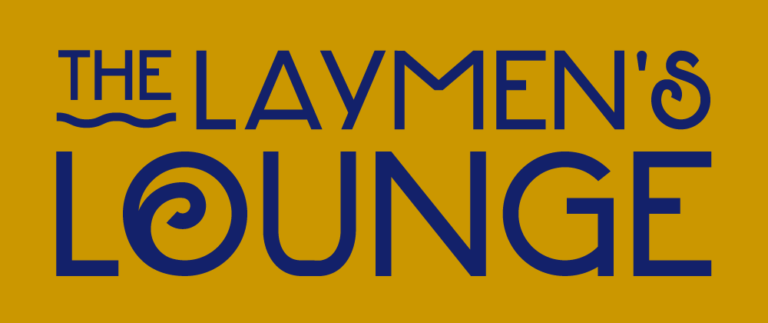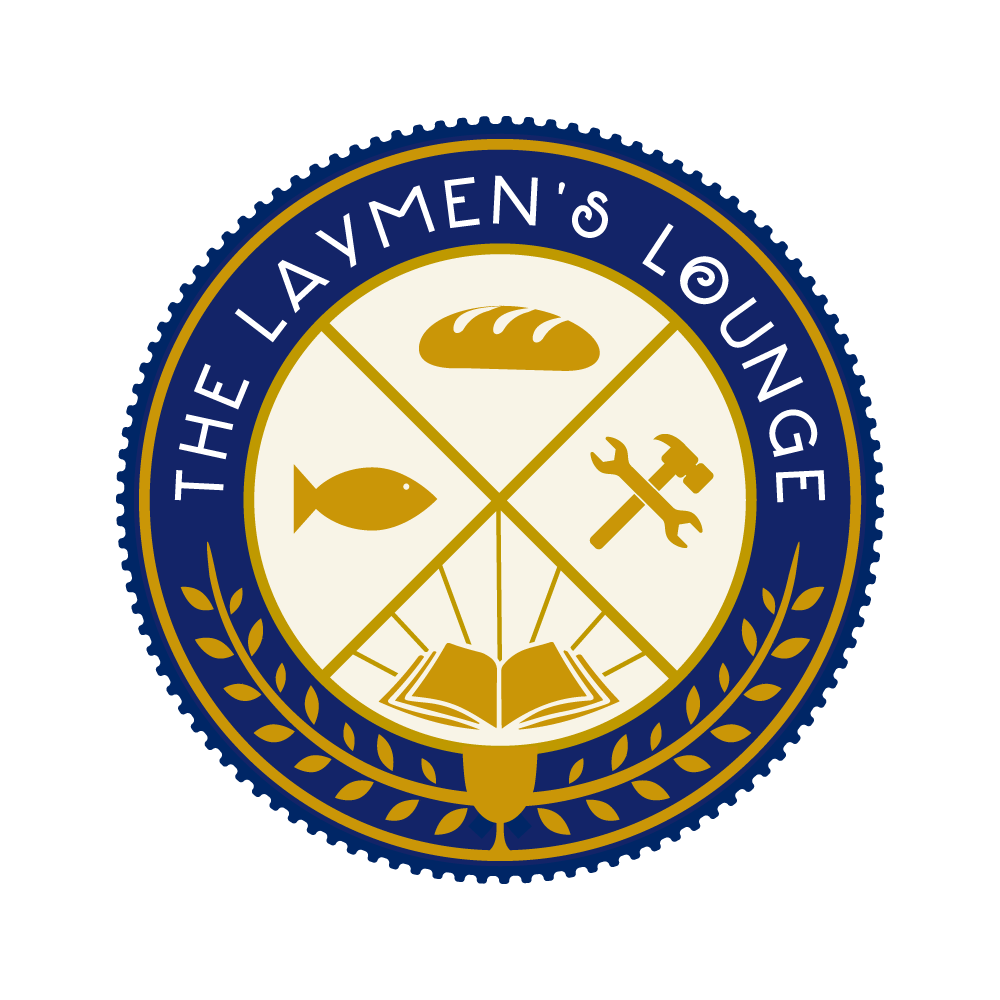by Steve Bishop
“Gordon, in my view, has been, perhaps the most outstanding neo-Calvinist theologian within the Christian Reformed community.” – John Vander Stelt

Gordon John Spykman (1923-1996) was one of the finest Reformational theologians. His Reformational Theology is perhaps one of the best theological works written in the twentieth century.
Spykman was the son of Albert and Dena (nee Klompmaker), he was born on 25 March 1926 in Holland, Michigan. Life did not start well for the young Spykman – sadly, at age three his mother died and then at age five he contracted polio.
In 1949 he enrolled at Calvin College for A.B. and then in 1949 earned a Th.B. from Calvin Theological Seminary. In 1952 he married Eleanor Hendriksen (1927-2014), was ordained as a CRC minister and moved to Amsterdam where he studied for his Doctor of Theology at the VU Amsterdam. His doctoral dissertation on the Council of Trent was published in 1955 as Attrition and Contrition at the Council of Trent. It was supervised by G.C. Berkouwer.
On return from the Netherlands, he became the minister of the CRC congregation at Blenheim, Ontario from 1955 to 1959.
His main ministry was as a professor of theology at Calvin College. He served there for over 30 years, from 1959 until he retired in 1991.
He served on several boards, including that of the Association for Public Justice (1972-1977). He was involved in the early days of the formation of the Institute for Christian Studies in Toronto – he was a guest lecturer in 1979 and served as curator from 1980 to 1986.
While at Calvin, he also served on numerous educational, ecclesiastical, and political CRC study committees. One committee he was involved with produced the contemporary confession Our World Belongs to God.

In his later years, he served as an associate pastor and as an elder at Plymouth Heights CRC, Grand Rapids until his death.
SOME KEY WRITINGS

Christian Faith in Focus (1967) shows Spykman the educator. As someone with a heart to communicate the faith clearly and succinctly. This book in 32 short chapters examines much of the scope of the Christian gospel in user-friendly terms. It acts as a study guide to the Christian faith. Typical is this short extract:
The Sovereignty of God
Central to our knowledge of God is his declaration of sovereignty. God is God. We have learned to understand many divine attributes: God’s love, his power, his justice, his mercy, his wrath, and so forth. These are properties and qualities which belong uniquely to God. But behind them all is that divine prerogative which we call sovereignty. God is accordingly sovereign in his love, in his power, in his justice, in his mercy, in his wrath, and so forth. Again, He is sovereign in creation, even in the fall, also in providence and redemption and the consummation of all things. As Lord of grace and glory, He therefore awaits our acknowledgment of his sovereignty in our homes, schools, churches, recreation areas, labor unions, political parties, social-action organizations, and all down the line.
The knowledge of God is never abstract or theoretical, but always personally and concretely related to our lives. The question is not, What is the being and essence of Cod in himself? But, Who is God to you? It is a knowledge of God that draws us into a living encounter with him, which transforms our hearts and reforms our lives. The knowledge of God, compelling and inescapable, always draws out of us one response or another. The right response is this:
O wide-embracing, wondrous love!
We read thee in the sky above;
We read thee in the earth below,
In seas that swell, and streams that flow.
We read thee best in him who came
To bear for us the cross of shame; Sent by the Father from on high, Our life to live, our death to die.
— Can you explain why and in what sense Christianity emphasizes the sovereignty of God?
— Why is it important to maintain that the knowledge of God is personal and practical?
— What is the relationship between the two song verses quoted above?
Never on Your Own (1969) is a study on the Heidelberg Catechism. In his introduction, Spykman describes it as “a traveler’s guide for young Christians … This book is a point-by-point explanation of the main teachings of the Catechism and the Compendium, written in the light of the Bible with your life in mind.”
Pioneer Preacher (1976) examines the sermons of A.C. van Raalte. It was published to coincide with the centenary of Van Raalte’s death and the centennial of Calvin College. Spykman describes van Raalte as a “Modern Moses”, he was one of the leaders of the nineteenth-century Dutch immigration to Holland, Michigan (Spykman’s birthplace). Spykman recognises the importance of van Raalte but is critical of his “two-storey theology” i.e. a nature/ grace dualism.

Society, State & Schools (1981) developed a case for structural and confessional pluralism. This was a theme that Spykman revisited several times. The book was produced as part of the Calvin Center for Christian Scholarship (CCCS. Spykman was the coordinator. Others involved included Rockne McCarthy, Donald Oppewal and Walfred Peterson.
Another of the CCCS projects Spykman worked on looked at Central America. This produced the book Let My People Live (1988). Spykman was again the project coordinator.
His book Spectacles (1983) comprised the lectures he gave when he was a guest at Potchefstroom University of Christian Higher Education, South Africa during 1983. In this book he examines five historic and four contemporary views on Christianity before examining some key themes or “biblical sightings”. These are the Word of God, the creation order, anthropology, and hermeneutics. His closing words are worth citing in full:
The cultural mandate and the mission mandate participate accordingly in an integrally coherent way in the unfolding drama of the Biblical message. If therefore we appeal to Genesis apart from Matthew we are left with a secularized world-view On the other hand, taking Matthew apart from Genesis leads to a highly spiritualized world-view. The unity of Scripture obliges us instead to hold them together as a pre-fall statement and a post-fall redemptive restatement of the same mandate, as a creational publication and a redemptive republication.
From these different perspectives, both are addressed to the same reality —our calling in God’s world. There is no tension between the Word of God as Creator and his Word as Redeemer. Rather, Christ Jesus takes the Word of his Father, spoken in the beginning, and rearticulates it against the background of his finished work of reconciliation. The mission mandate is therefore a historico-redemptively updated restatement of the cultural mandate. This then is the abiding foundation of Christian scholarship, securely anchored in creation, reinforced in redemption, with its windows now open to the renewed earth under renewed heavens.
The themes covered in Spectacles are themes that recur time and again in Spykman’s writings.
These themes were to the fore in his magnum opus Reformational Theology (1992).

Commenting on his book Spykman wrote:
The title, Reformational Theology, is the outcome of a very self-conscious and deliberate set of decisions. It is intended to signal the tradition out of which this renewal project in Reformed dogmatics is born and which helps give it shape and form. Nothing is ever gained, I believe, in theology or anywhere else, by trying to disguise one’s religio-philosophical tradition. Tradition, like roots, belongs to the very lifeblood of theology. Detached from its tradition, theology, like a cut flower severed from its roots and sub-soil, soon withers in one’s hand. No theology ever arises de novo.
One of the main innovations of this Reformed dogmatics is that it is centred on the biblical storyline of creation, fall and redemption rather than the traditional approach of God, humanity, Christ, Salvation and so on. The other innovation is his adoption, following Vollenhoven, of a three-factor approach of God/ word/ creation. Again, themes such as the Word of God, redemptive-historical hermeneutics, the creation order, sphere sovereignty and principled pluralism, and anthropology are central to his work.
It is this book that established Spykman as one of the foremost Reformed scholars. His work deserves a wide readership. It is significant that the scholars Spykman mentions most are Bavinck, Berkhof (both Louis and Hendrick), Berkouwer, Calvin, Hoekema, Kuyper (58 times), and Ridderbos. Also mentioned, unusual in a theological tome, are Dooyeweerd (16 times) and Vollenhoven (6 times). Spykman is heavily influenced by Dutch Calvinists – he is unashamedly a neo-Calvinist theologian.

In his 1988 commencement address to Dordt College – Spykman closed with these words:
And as my parting word, this final reminder that nothing matters but the Kingdom of God but because of the Kingdom, everything, literally everything, matters.
Books
1955. Attrition and Contrition at the Council of Trent. Kampen: Kok.
1965. Teach me Thy Way. (with J M Snapper). Grand Rapids: CRC
1967. Christian Faith in Focus. Baker: Grand Rapids. (Also 1992 Jordan Station: Paideia Press).
1969. Never on Your Own. Grand Rapids, MI: Board of Publications of the Christian Reformed Church.
1976. Pioneer Preacher, Albertus Christiaan Van Raalte: A Study of His Sermon Notes. Grand Rapids: Heritage Hall.
1977-79. Study Guide Promise and Deliverance. Vol I, II St Catherine’s: Paideia.
1980. Society, State, and Schools. (editor) Grand Rapids, MI: CCCS/ Eerdmans.
1981. Men and Women: Partners in Service with Lillian V. Grissen. Grand Rapids, MI: CRC Publications.
1981. A College at the Crossroads. Jordan Station: Paideia Press.
1983. RES Testimony on Human Rights. Grand Rapids: RES.
1984. Calvinism in America – Review and Reflections. F1 no 193. IRS, PU for CHE: Potchefstroom.
1985. Spectacles: Biblical Perspectives on Christian Scholarship. Potchefstroom: PU for CHE.
1988. Let My People Live: Faith and Struggle in Central America. Grand Rapids, MI: Eerdmans
1990. Human Rights: A Biblical Study. Grand Rapids, MI: CRC Publications.
Further Resources
A website dedicated to the life and works of Spykman
The Gordon Spykman pages – several of Spykman’s articles are available from here.
Gordon J. Spykman Collection, 1943-1993 | Heritage Hall, Hekman Library
The collection includes minutes and materials from various committees of the Christian Reformed Church and Calvin College; chapters in books, booklets, addresses, and reflections; papers detailing a wide range of social, religious, doctrinal and controversial issues; speeches; sermons; college class notes; and drafts, outlines, and supporting materials for the book Let My People Live by Spykman, et al., 1987.
Steve Bishop is an independent researcher based in Wales, UK. He maintains the neo-Calvinist website www.allofliferedeemed.co.uk. He is a trustee of Thinking Faith Network and an Associate Fellow at the Kirby Laing Centre for Public Theology. He earned his doctorate at the North-West University, Potchefstroom, South Africa (2019), supervised by Renato Coletto. He is the co-editor of On Kuyper: A Collection of Readings on the Life, Work & Legacy of Abraham Kuyper (Dordt Press, 2013).
He has had articles on Kuyperian neo-Calvinism published in Foundations, Koers, Pro Rege, and the Journal for Christian Scholarship.


